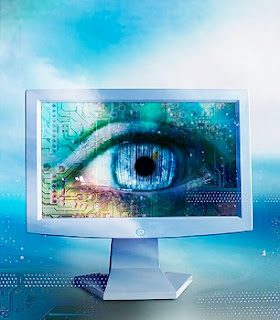Like my blog? Sign-Up for a FREE newsletter! OR Give a ‘Like’ to my FaceBook Page
 Guest post from Shannon Page of IdentityTheft.net
Guest post from Shannon Page of IdentityTheft.net
Avoiding identity theft is important. If you’re not careful, someone could steal your personal information and use it to rob you blind–or at the very least damage your credit extensively. Fortunately, there are things to look out for that will let you know someone is trying to gain access to your Social Security number, credit card numbers, or other valuable, private financial information. Following are a few tips on how to detect and deter identity theft.
Beware of Scam Artists
It doesn’t make any difference if it’s on your computer, or over the telephone, scam artists are out there waiting for you to make a mistake and allow them access to your personal information. You’ve undoubtedly heard the old saying that ‘if it sounds too good to be true, it probably is.’ That is something to keep in mind the next time you get a telephone call or an e-mail from someone telling you that you’re the winner of a contest–especially if you don’t remember entering one. Of course, if you did enter a contest you may want to listen to them, but do so carefully, and don’t commit to anything unless and until you’re absolutely sure they’re on the up and up. If it is a legitimate contest, and you remember entering, then you may have won something, but in most cases this is just a ploy to get you to reveal private information.
Keep Personal Information Safe Use caution when revealing personal information. Unless the person on the other end of the telephone line or the computer hookup has a legitimate need for the information, you should keep it to yourself. Some places actually do need your Social Security–they are limited to people you’ve done work for, or if you are applying for government aid. If you’re not 100% sure of whom you’re talking to, and their need for the information, don’t reveal your Social Security number to them. Another way that scammers attempt to gain information about people is by dumpster diving–literally. They will actually go through discarded trash looking for letters that contain personal information, such as a credit card number or a bank account number. Something like a canceled check will give them a good start on stealing your identity, so shredding all personal information before you throw it out could save you a tremendous hassle later on.
Be Careful on the Internet
One of the greatest boons to mankind in recent years also happens to be one of the greatest threats to our financial and personal security–the Internet. It has shrunk the world to the point where you have almost instantaneous access to anywhere in the world from the comfort of your own home, but it also allows access to your home the same way. By using viruses, Trojan horses, malware, spyware, and worms, an identity thief can actually go so far as to view each keystroke on your computer–as you type. Fortunately there are ways to prevent this invasion. If you make sure you have a quality Internet security program installed on your computer, and take pains to keep the program updated regularly, you will more than likely be able to prevent any outside intrusions. You must make every effort to ensure your software is up-to-date, however, because scammers and computer hackers are diligent in trying to gain access to personal data. In addition to antivirus-type programs, you should also make sure you use firewalls whenever possible. Many programs or websites ask for a password to be entered in order to get into their system. Be sure to vary your passwords–don’t always use the same one, or even a variation of the same password. Instead, you should use a combination of random letters and numbers that will make a hacker’s job much more difficult–which could cause them to move on to a more likely identity theft candidate. If you shop online be sure and use secure websites only.
Non-Technical Spies
Not all identity thieves use the telephone or Internet to spy on you. When you’re standing in line at a grocery store, make sure no one is looking over your shoulder when you punch your PIN (Personal Identification Number) into the credit card machine. The same goes for withdrawing money from an ATM. If you write a check, make sure no one but the cashier can see your check routing number.
